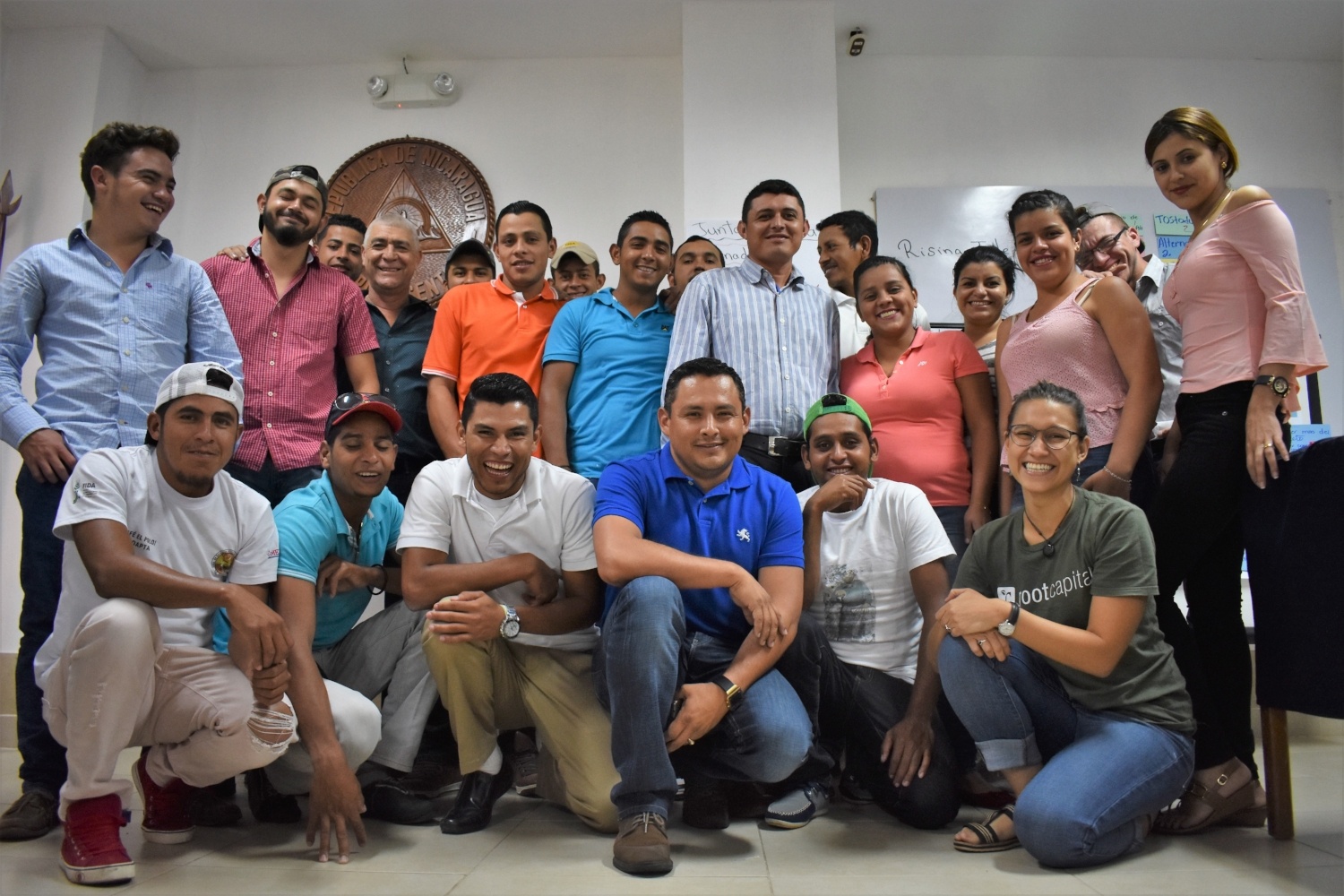
A few weeks ago, I had the privilege of traveling to the coffeelands of northern Nicaragua to see Root Capital’s advisory team in action.
Just as important as the capital we lend are the financial management and agronomic trainings we offer through our advisory program. Ranging from basic financial and accounting workshops to targeted mobile technology or agronomic instruction, these trainings position businesses for long-term success.
Inspired by our Gender Equity Grants program and the trainings we offered through the Coffee Farmer Resilience Fund, we’re piloting small grants to help clients maximize their impact in other areas—for example, boosting farmer resilience to climate change or unlocking opportunities for youth. With support from the Rising Tide Foundation, our Latin America-based Advisory team selected three coffee clients to receive “Challenge Grants”—$20,000 grants to boost youth participation in high-impact projects. But we aren’t just dropping off a check; our advisory team is working with youth groups at each business to develop a community project, and accompanying them with the training they need to bring that project to fruition.
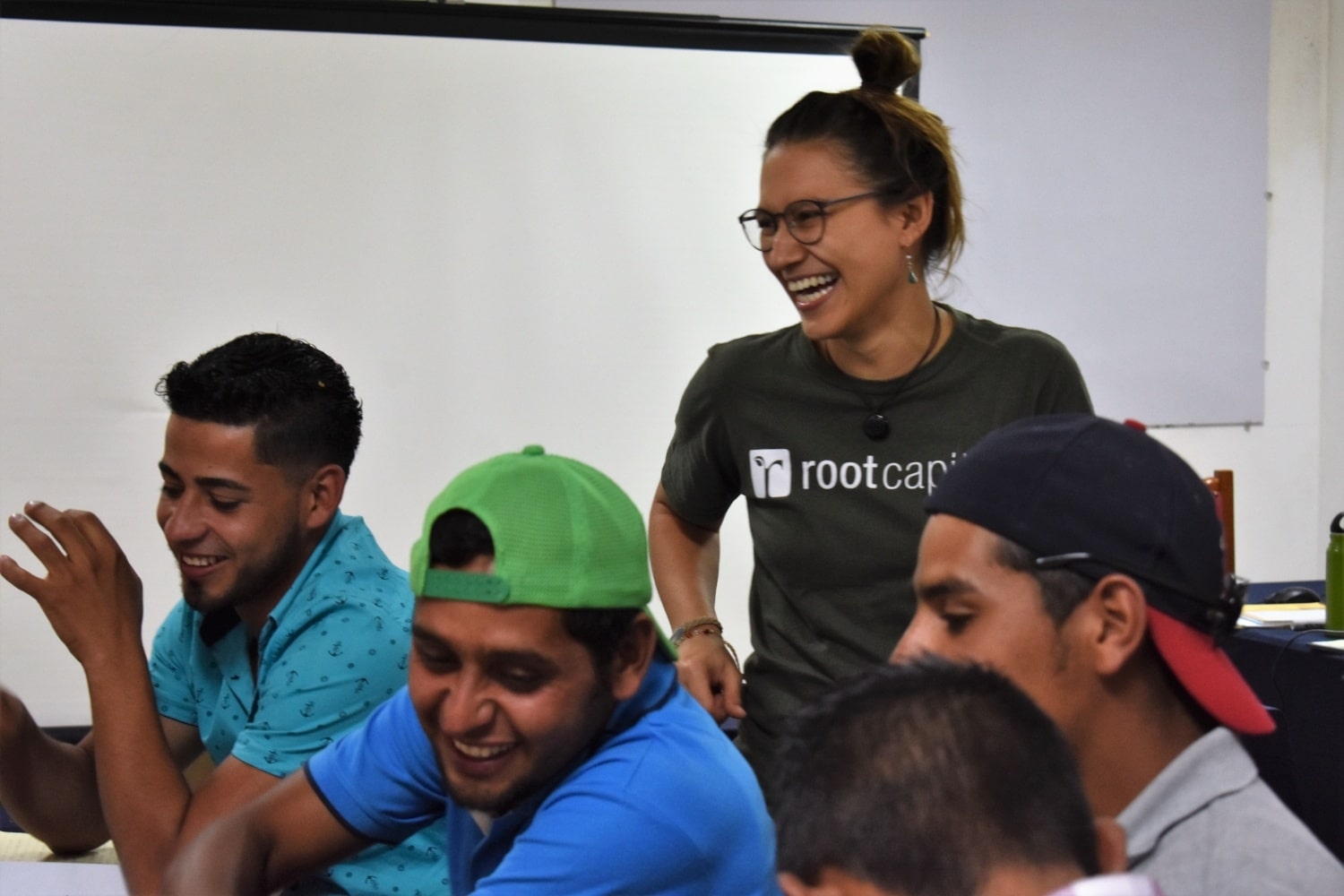
Over the course of four days in Estelí, Nicaragua, we met with two groups of producers, producers’ children, and young employees of our clients El Polo and El Gorrión. Given that this was a fairly new program (and that it was my first time in the field), I wasn’t quite sure what to expect. But I left the workshops inspired by the passion of the young participants, impressed by the talent of our advisors, and doubly convinced of the need for our work.
Here are five things I took away from my week in Nicaragua:
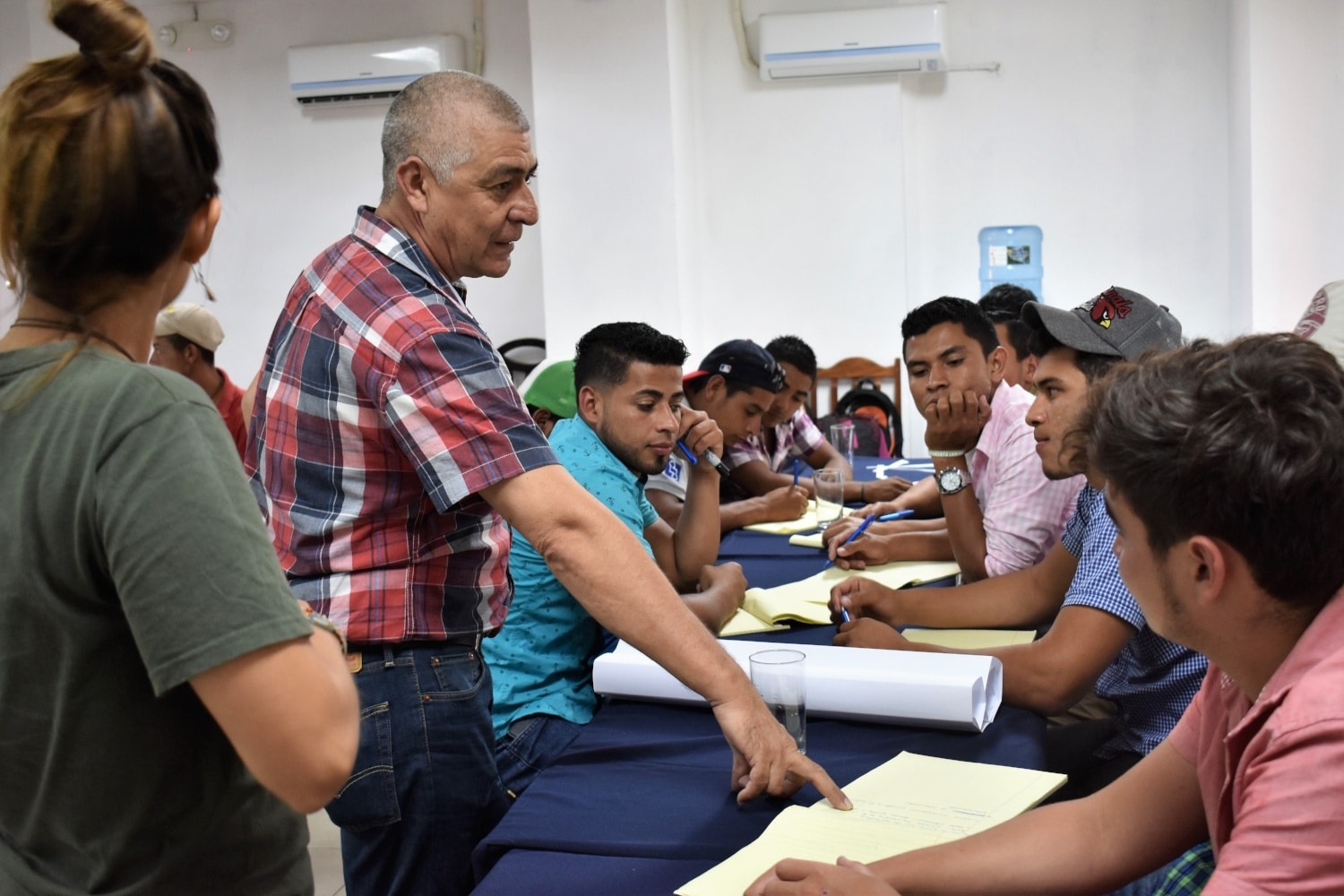
Root Capital advisor Norman Leiva with the youth group from El Polo.
1. Our advisors are very good at their jobs.
Over two days with each group, our advisors Melanny Zúñiga, Norman Leiva, and Olman Díaz walked the participants through every step of what it takes to direct a successful project. They worked with participants to develop common expectations, encouraging them to develop alternate ideas and challenging them to acknowledge and address the project’s risks. Each group entered their workshop with a good idea; they left with a leadership committee, a set of next steps, and a renewed sense of determination to make their project work.
Our advisors are expert facilitators, and they know how to command a room. But to me, the main reason they earned such respect was because they truly understood their audience’s perspective. Melanny is the same age as most of the participants, and comes from a similar background; as she spoke about growing up in a small town in the Costa Rican rainforest, it became clear to me that she had seen similar challenges and opportunities in her own community. Olman and Norman, for their part, didn’t just grow up in the same place as these youth—they still live there. Our advisors understand exactly what these young people need to succeed, and are perfectly positioned to give them the training that will unlock their potential.
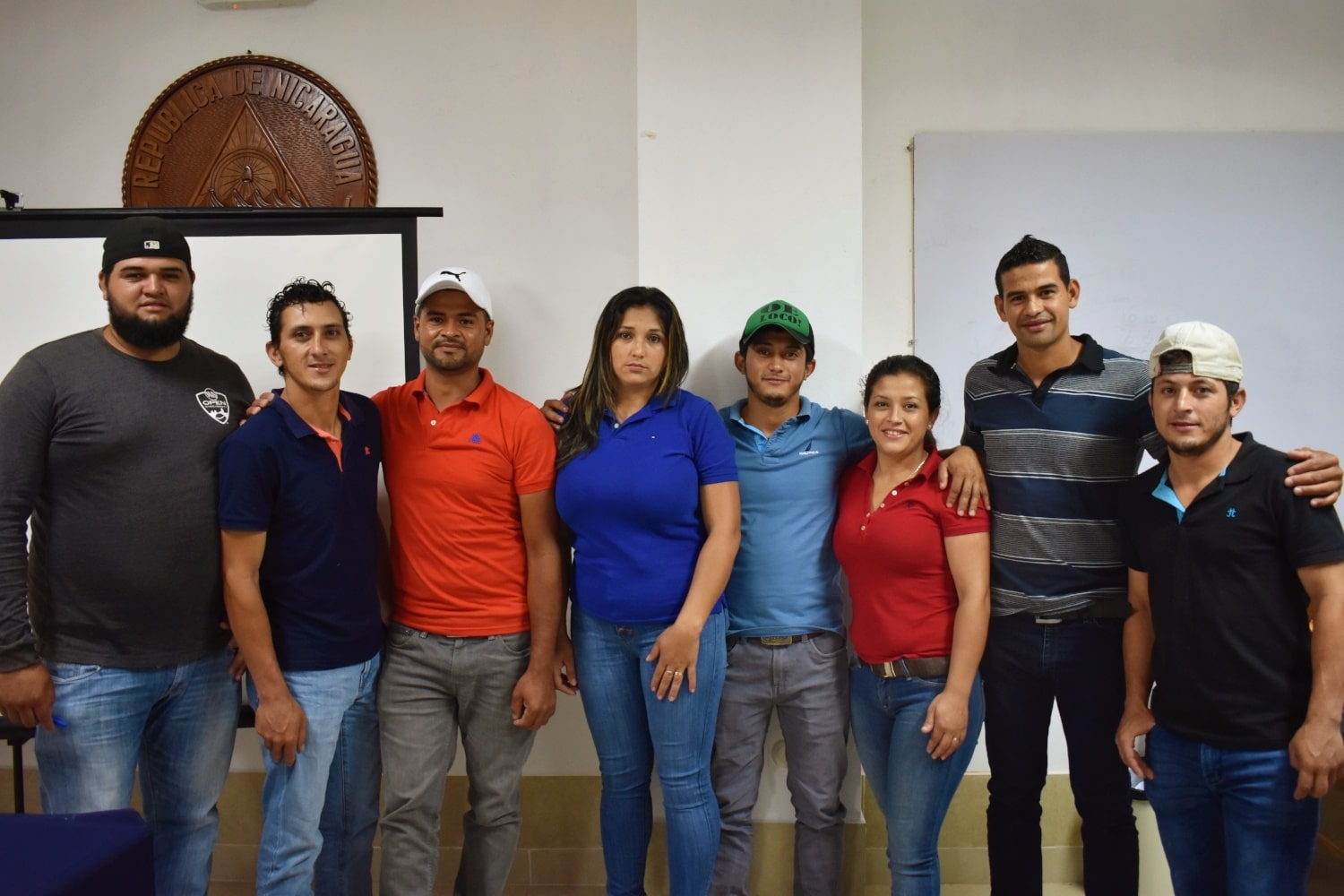
The Cruz Zeledón family — six siblings and one cousin, all of whom are producer-members of El Gorrión.
2. In agriculture, impact doesn’t only take place on the farm.
One evening at dinner, Norman joked, “For all Will knows, Nicaragua is just this conference room!” He was right. To be honest, I had expected that on my first trip to the field, I would see more… well… fields. In contrast, this set of workshops took place entirely in the same conference room in the third-largest city in Nicaragua. But sometimes, that’s where the real impact is. What these young people needed to make their projects work was professional training on entrepreneurship and project management. That’s exactly what our advisors gave them.
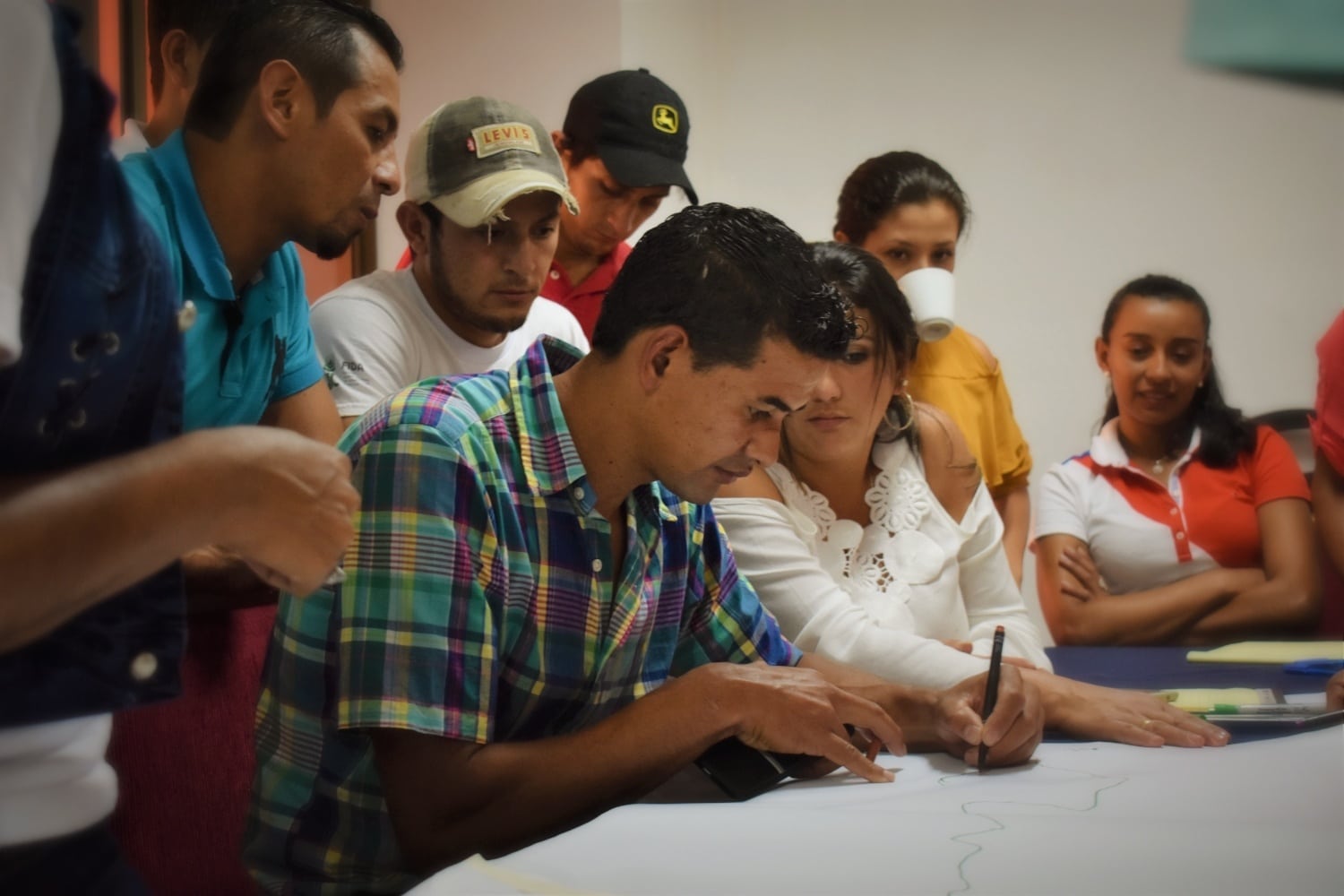
Young producer-members of El Gorrión sketch the map of their proposed ecotourism trail.
3. We’re not working with youth to fill a quota. We’re doing it because they bring a fresh perspective.
For their project, the youth of El Gorrión are developing an “ecotourism trail” to show off their community’s natural beauty. When I first heard this idea, I was skeptical; the cooperative is in a pretty rural area, and I wasn’t sure whether it would be viable.
But over two hours, this group convinced me. Using satellite maps from their phones, they drew a well-thought-out sketch of the proposed route. Participants who until that point had barely spoken presented confidently about what they could offer to this project: a young woman who had always loved cooking volunteered to start a small restaurant, another woman shared her ideas for cabins where tourists could sleep, and a producer-member with a personal passion for beekeeping offered to present to tourists on sustainable honey production.
With sustainable coffee plantations popping up in travel guides and organic farms welcoming “volun-tourists” from around the world, it’s becoming clear that ecotourism is a model that works. With the proper training, this committed group of young people could bring that movement to their corner of Nicaragua.
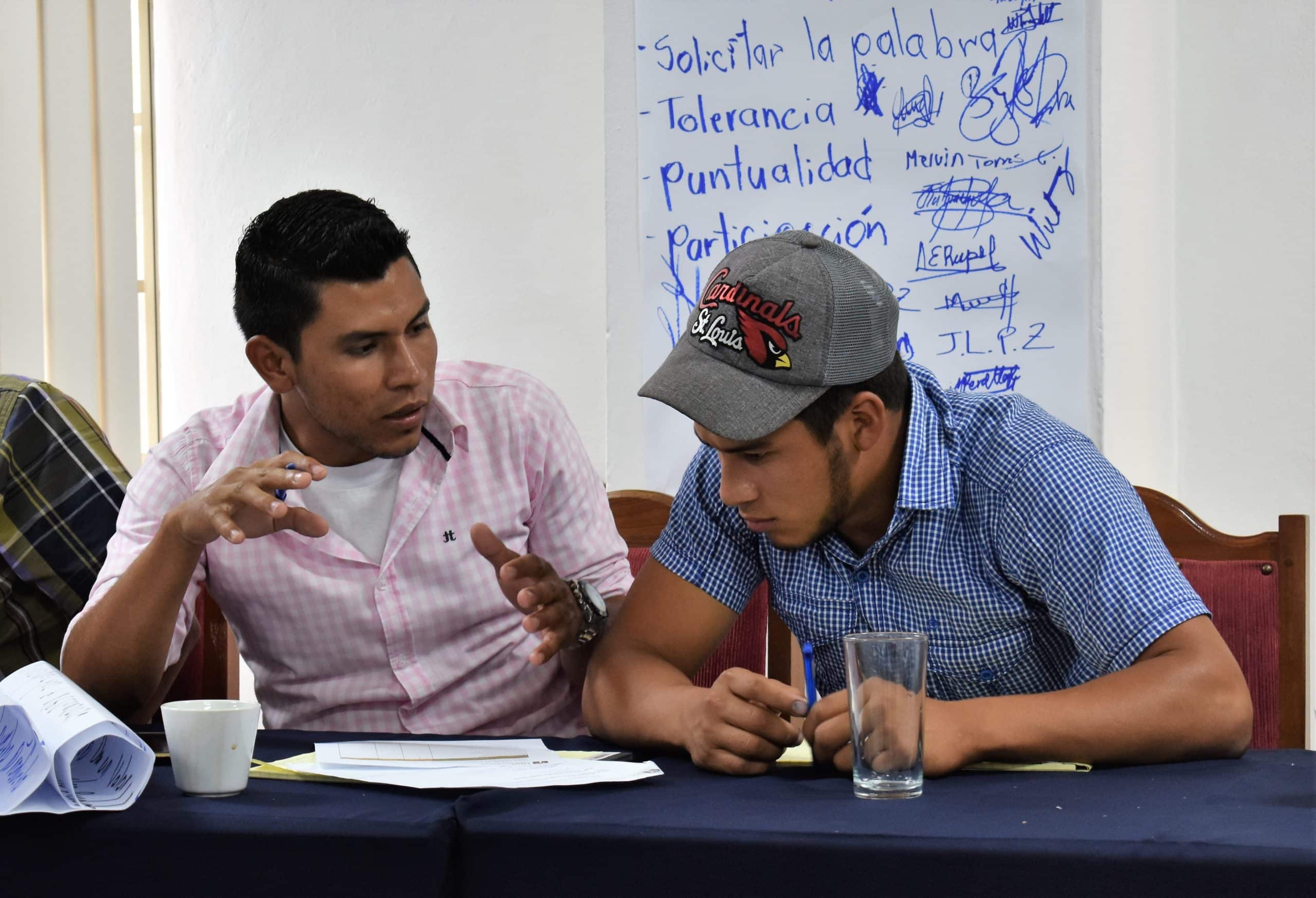
El Polo producer-member Byron Ismael Lira Sandoval (left) discusses an idea for a project with another member of the youth group.
4. No solution is “one size fits all.”
“Depende” – “It depends!” Olman said that word so often over each two-day training that it became a running joke. But developing projects like this truly does depend—on the group we’re working with, the project they choose, and the unique constraints and opportunities offered by their communities. Whereas the group from El Gorrión chose to develop an ecotourism project, the students from El Polo are using their funds to build a lab to test the quality of their producers’ soil and assess which fertilizers could be applied to maximize farmer productivity. While these projects seem different on the surface, they were linked by a common thread: the young people in charge of them, developing projects that address the needs of their own communities.“In the communities you live in, there’s so much that you can learn,” Olman remarked. While they remained aware of the challenges they faced, I saw the participants recognize the opportunities that are all around them—and take the first steps towards implementing projects that will make their communities even better.
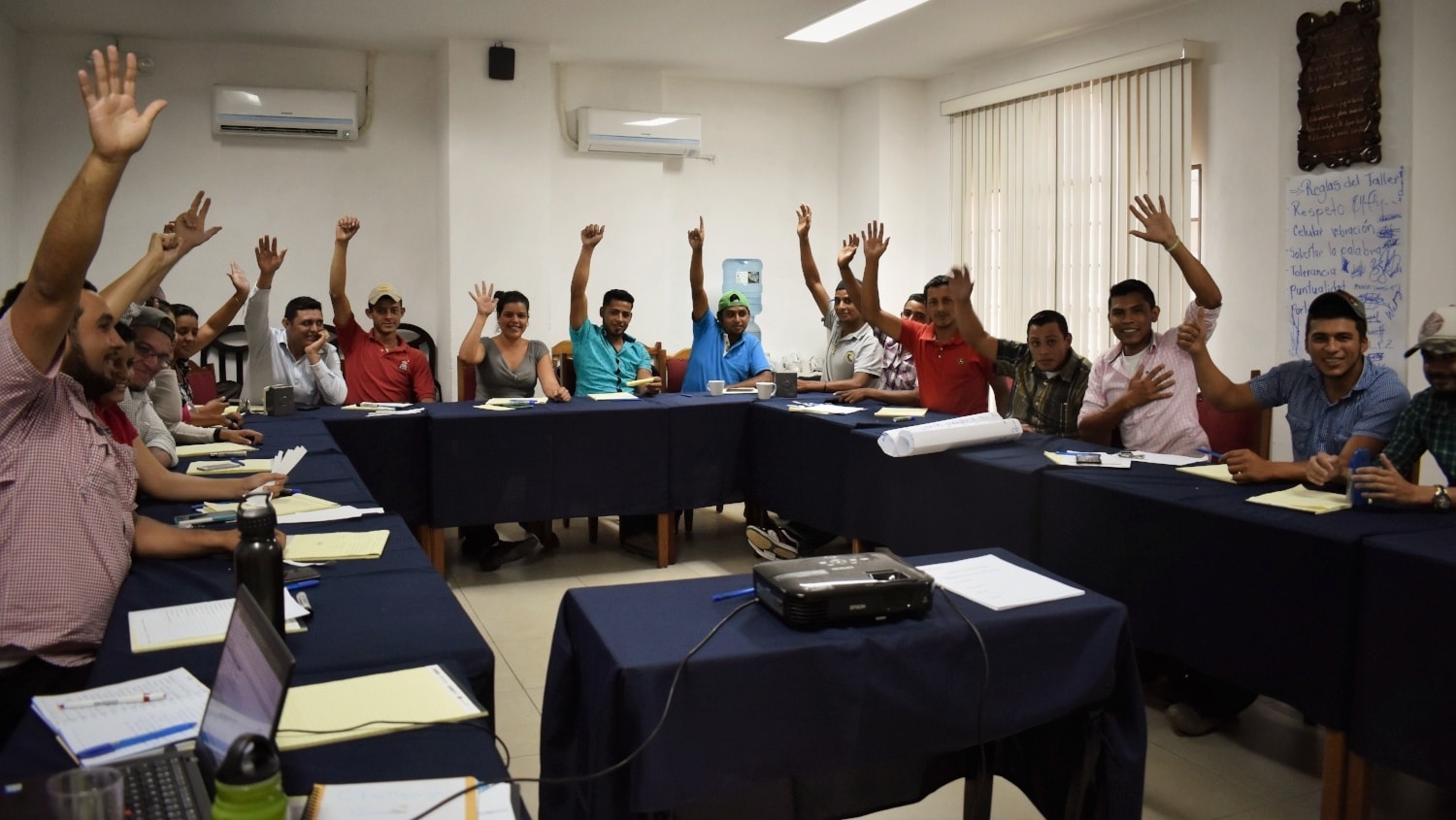
At the end of the workshop, we asked the participants from El Polo whether now they saw entrepreneurship in themselves. Everyone raised their hand “yes!”
5. Entrepreneurship is everywhere.
Norman and Olman defined the entrepreneurial spirit in terms of three qualities: ability (“I can”), commitment (“I want”), and action (“I do”). When they entered the workshop, few of the participants saw entrepreneurship in themselves; by the end of it, all of them did.“Not everyone needs to be an entrepreneur,” Olman remarked at the beginning of the workshop. But the qualities of the entrepreneur are universal. Young people don’t all need to start something on their own; but by recognizing their abilities, leveraging their passion, and committing to action, together they can bring a project to life.
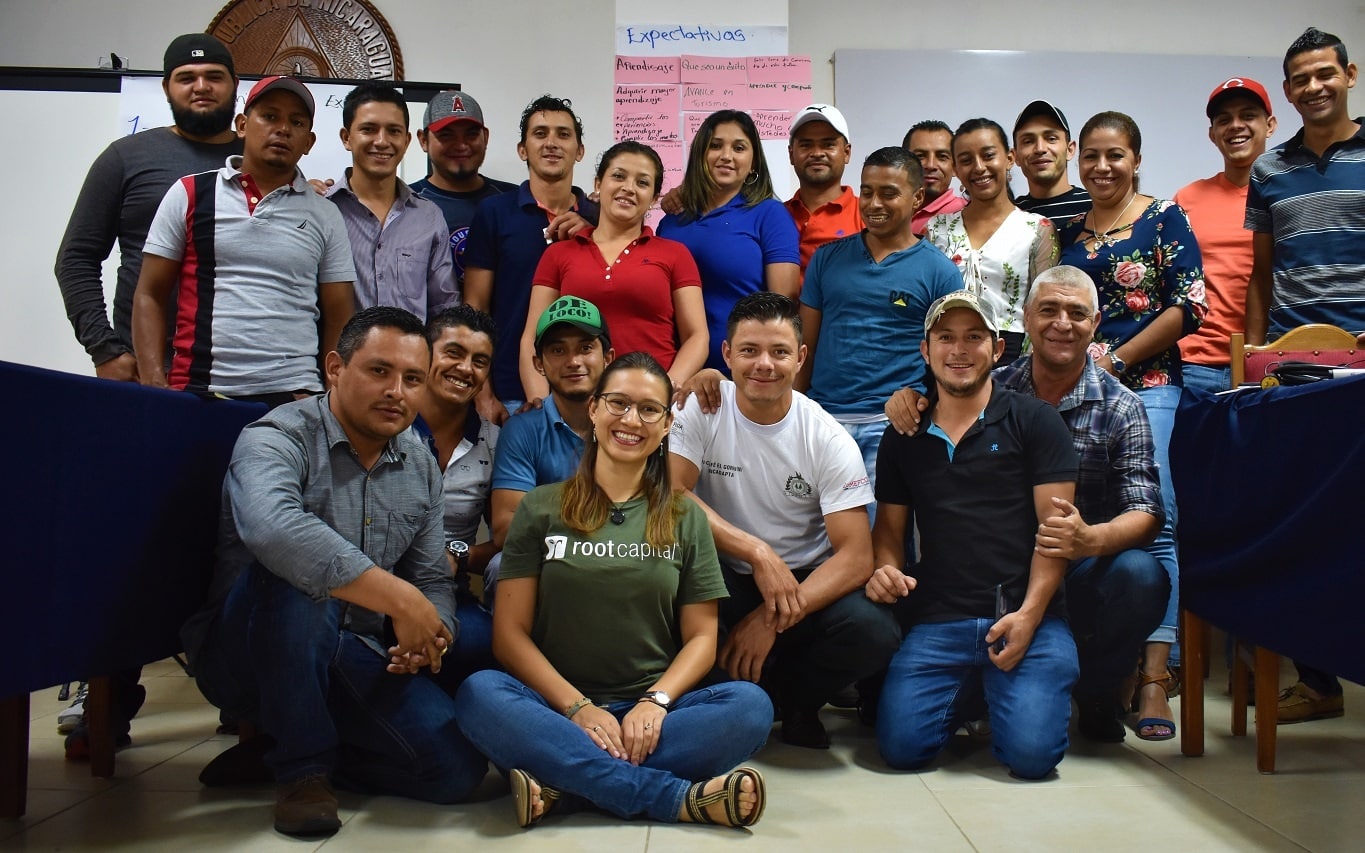
By working with youth, we were able to discover ideas that never would have surfaced through a similar workshop with more seasoned professionals. We often say that the agricultural business is the heart of the rural community; in the coffeelands of Nicaragua, it’s young blood that’s making those hearts beat.
By supporting Root Capital, you support the rise of youth in agriculture. Click here to learn more about the young leaders who are the future of farming.

